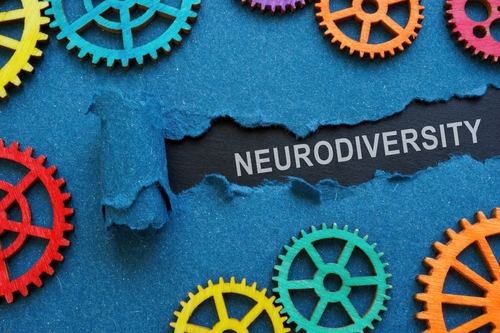Thirty-five percent of 18-year-olds with autism attend college, but a staggering 85% of college graduates with autism are underemployed or unemployed. Over 1 million people with autism in the United States will reach adulthood in the next decade, most of whom will be searching for work. Hiring processes consistently overlook autistic candidates, favoring neurotypical candidates who are better prepared to navigate the unspoken social rules implicit in the hiring process. The sheer volume of candidates who are overlooked by hiring processes is one reason it’s critical companies start paying more attention to attracting, hiring, and retaining people on the autism spectrum. In addition to the moral imperative for hiring equity, college-educated autistic candidates are as qualified as their neurotypical peers, and there’s evidence autistic employees contribute above-average attention to detail, dependability, and focus to their roles.
My team’s research, compiled in a report titled “Examining the Use of GBAs for Hiring Autistic Job Seekers,” found that autistic candidates scored functionally the same as neurotypical candidates in game-based hiring assessments.
Why Is This Important?
Inclusion starts with hiring; talent decision-makers are the gatekeepers of opportunity, and by adopting practices that are grounded in evidence, these leaders have a chance to truly diversify their workforce. This research is all the more significant as we see greater numbers of employers emphasizing skills over résumés by incorporating pre-hire assessments into their hiring. Based on this research, it appears games are one way to design a process that’s more inclusive, particularly for groups, like autistic individuals, who are regularly screened out by traditional hiring methods.
For instance, it’s well documented that organizations that don’t mention disabilities in their diversity initiatives are less likely to attract disabled talent, and job boards themselves may discourage candidates if their designs aren’t accessible to people with disabilities.
A Changing Hiring Landscape
HireVue’s 2023 Global Trends Report found that employers are rethinking not just how they’re hiring but also who. Nearly half (48%) of the leaders surveyed are adopting a skills-first approach to talent acquisition, forgoing educational and past work experience unless it’s actually relevant to the job at hand. Not only have these methods widened the talent pool, but they’ve also raised the quality of that pool by attracting a more diverse workforce. In fact, 61% said they’re now targeting neurodiverse candidates. Additionally, 32% say they’ve adopted game-based assessments in the past year to up their talent game.
Why Study Games?
The research team focused on games because game play has been considered in multiple contexts in autism literature. Most frequently, research has focused on games to deliver early treatment or skill development in autistic children or, recently, to deliver traditional diagnostic assessments earlier to autistic children. Game-like smartphone applications have also been explored as a method for supporting autistic workers by delivering instructions to them in real time. In short, games appear to be a promising medium for delivering content to autistic individuals in a variety of conditions and applications.
Furthermore, novel assessments can be an opportunity for organizations to signal they’re forward-thinking in their selection process. Game-based assessments not only possess features that make them more engaging and accessible but also can be taken at any place and at any time, as they’re delivered by either computer or smartphone, making them highly accommodating relative to traditional screening methods, such as interviews.
As the proportion of autistic jobseekers grows, the results of this study suggest that measuring cognition via game-based assessments can fairly assess autistic and neurotypical candidates and give organizations a head start when hiring in a neurodiverse world.
Conclusion
At HireVue, we acknowledge the impact of work and believe every person deserves equal opportunity to thrive when searching for a new job. We’ve seen firsthand how dismantling biases in the hiring process can change candidates’ lives, and we hope more people will join us on this journey to democratize hiring in 2023.
Colin Willis, PhD, is a Senior Industrial Organizational Psychologist at HireVue, a global leader in video interviewing, assessments, and text-enabled recruiting tools.

